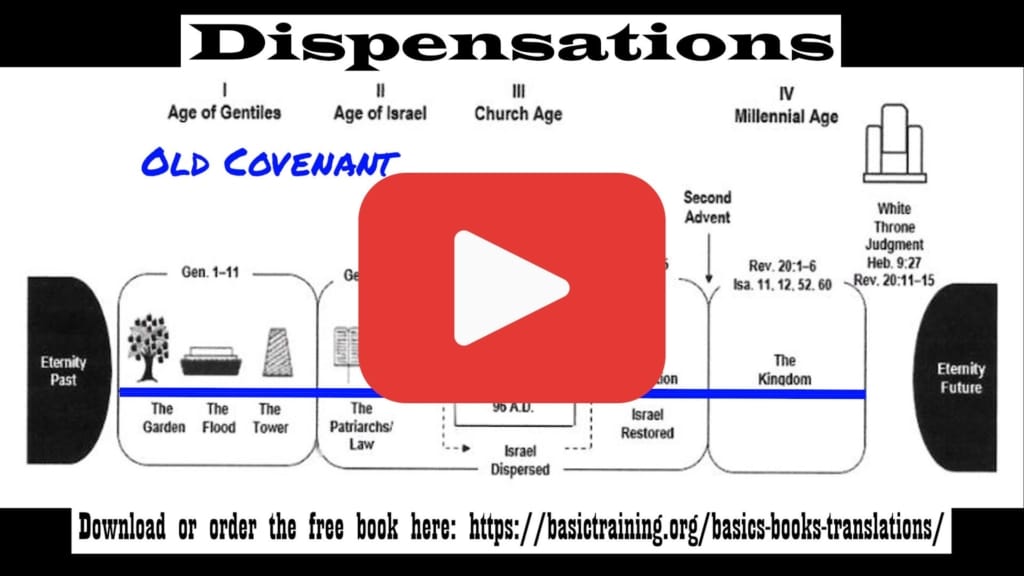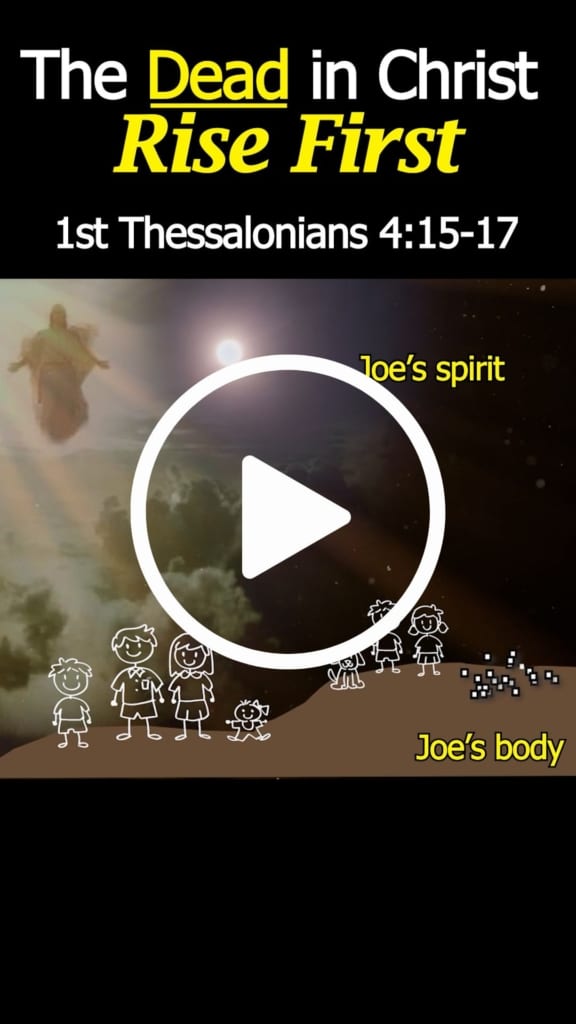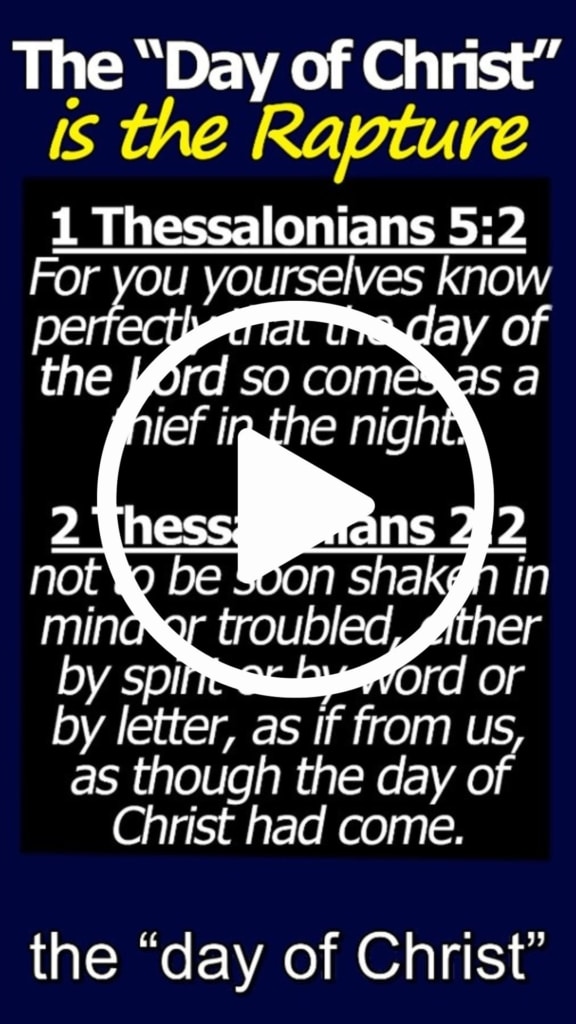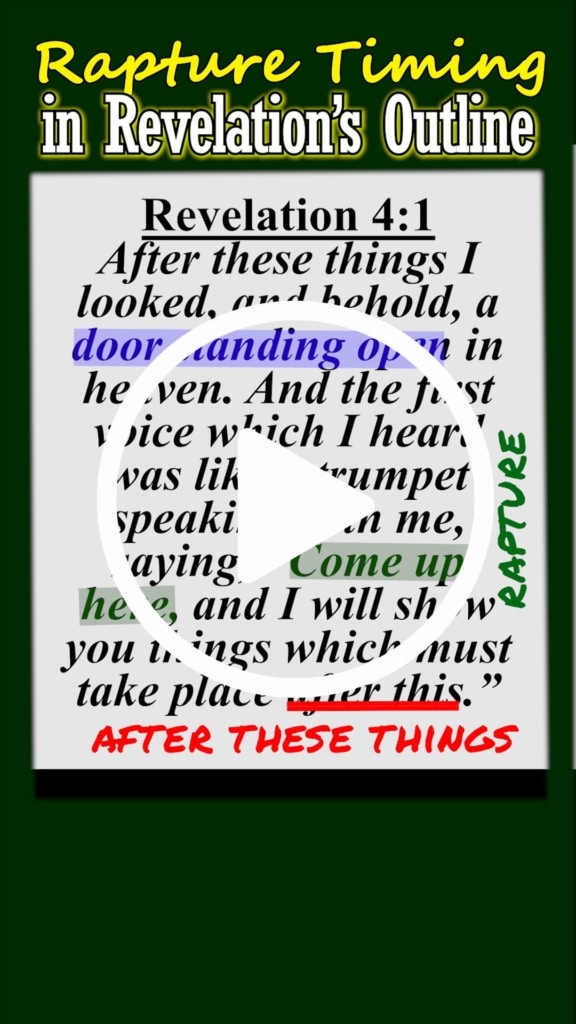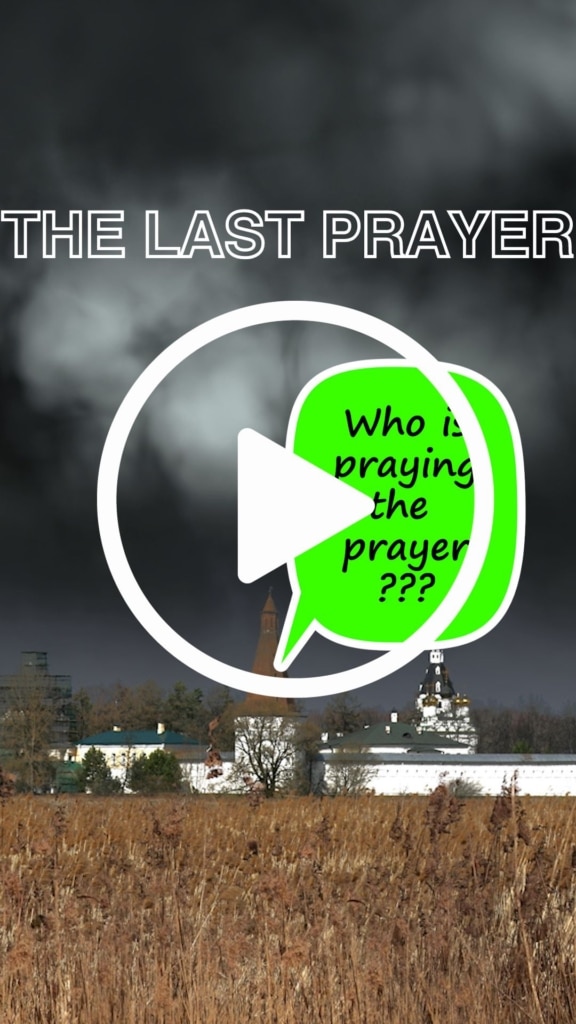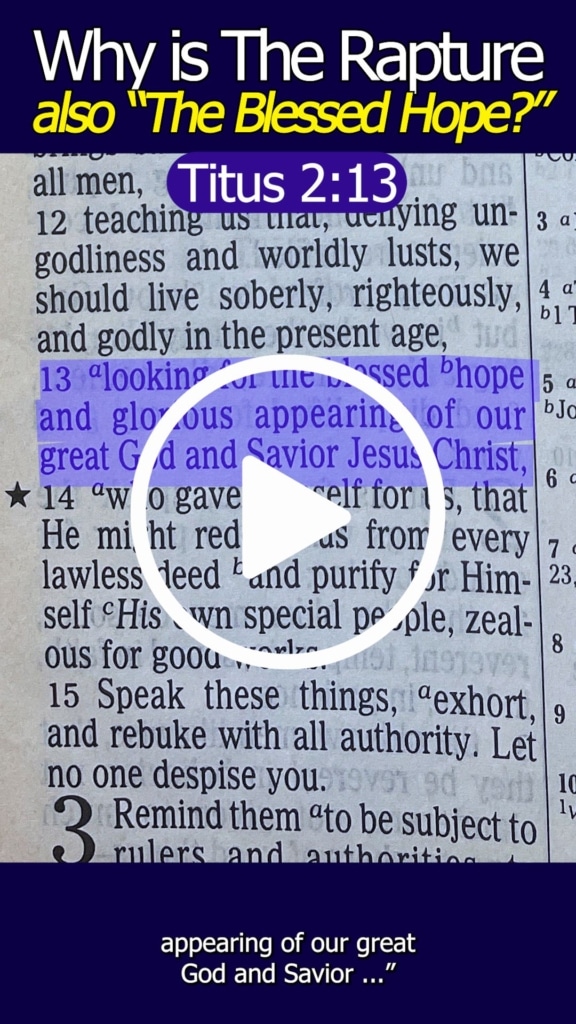- The Paradox of History
- The Essence of God
- Raw Material
- Available People
- Humility
- Spiritual Gifts
- Meekness
- Baptisms
- Three Functions of the Believer
- Ambassadorship
- Seven Figures of Christ and the Church
- The Mature Believer and Personal Accountability
- Tongues as a Spiritual Gift
- Prophecies of Jesus Christ in the Psalms
- The Perspective of Grace
- Discipleship
- Blessing and Reward
- How to Redeem Time
- Dispensations Timeline
- The Rapture
- The Day of the Lord and The Day of Christ
- The Good Fight of Faith
- Suffering
- Decisions
- No Truce
- Peace
- 10 Principles of Warfare
- God is Able, God Is Faithful
- Present Session of Christ
- Religion: The Enemy’s Ace
- Power In Us
- Faith
- Small Things
- Five Techniques (to spirituality)
- Eight Sabbaths
- Faith-rest
- Strange Tests
- Daily Disciplines
- The Faith-rest Technique
- Three Sources of Temptation
- Divine Wisdom
- The Value of Wisdom
- Evil
- The Royal Code
- The Character of Grace
- The Cross to the Crown
- Water and the Spirit
- Spirituality
- Synonomous Terms
- Reversionism and Recovery
- Soul Strengths and Soul Kinks
- Discipline
- Seven Steps of Spiritual Advance
- The Race of Life
- The Will of God
- The Old Sin Nature
- Energized Prayer
- Abiding: Absolute Thinking
- God’s Faithfulness
- Salvation in The Book of James
- “All things work together …”
- Biblical Spirituality
- Dispensations
- Death
- Endurance
- Essence of God Acronym
- Eternal Security
- Fellowship with God
- Five Commands for Christian Soldiers
- Five Factors of Effective Faith
- Five Techniques of the Christian Way of Life
- Five works of the Holy Spirit
- Five Works of the Spirit in Regard to the Word
- Free Will
- Freedom
- God is Able
- God Revealed
- Greek
- Hebrew Words for Faith
- Hermeneutics
- Imitation of Christ
- Man’s Barrier with God
- Parakaleo
- Seven Steps of Spiritual Recovery
- Seven Steps of Spiritual Retreat
- Spiritual Flexibility
- Spiritual Rest
- Stages of Spiritual Growth
- Take up Your Cross and Follow Him
- The Blood of Christ
- The Call of God
- The Daily Care of the Soul
- The Doctrine of Sin
- The Good Soldier of Jesus Christ
- Christ’s Work on the Cross
- The Church
- The Holy Spirit and Christ
- The I AM Sayings of Christ
- The Importance of the Word of God
- The Overcomer
- The Plan of God
- The Spirit in the Old Testament
- The Way of Salvation
- The Way to be Salt and Light
- The Words of Jesus
- The Work of Christ on the Cross
- Using the Physical to Learn the Spiritual
- Ways of Learning
- The Christian Way of Life
- The Christian Walk
- Scriptural Proof of the Pre-tribulation Rapture
- The Five Crowns
- Jesus Christ in the Tabernacle
This document was derived from an audio lesson transcript at a small-group Bible study. A printable version is >>>CLICK HERE<<<.
Many people are not able to distinguish the two times in the Bible that Jesus is prophesized to come back. Tragically, many pastors are not able to distinguish between the prophecies that relate to the Second Coming and the prophecies that relate to His return for His Church. Many people don’t even know that there is a distinction between these two events. We consider the Tribulation. We look at the anguish, the sorrow, the suffering, the misery and ask: Do we, as Church-Age believers, have to go through all that? Therefore, we’re going to take a deeper look into the distinctions between these dispensations.
Gene Cunningham - October 26, 2023
Scriptural Proof of the Pre-tribulation Rapture
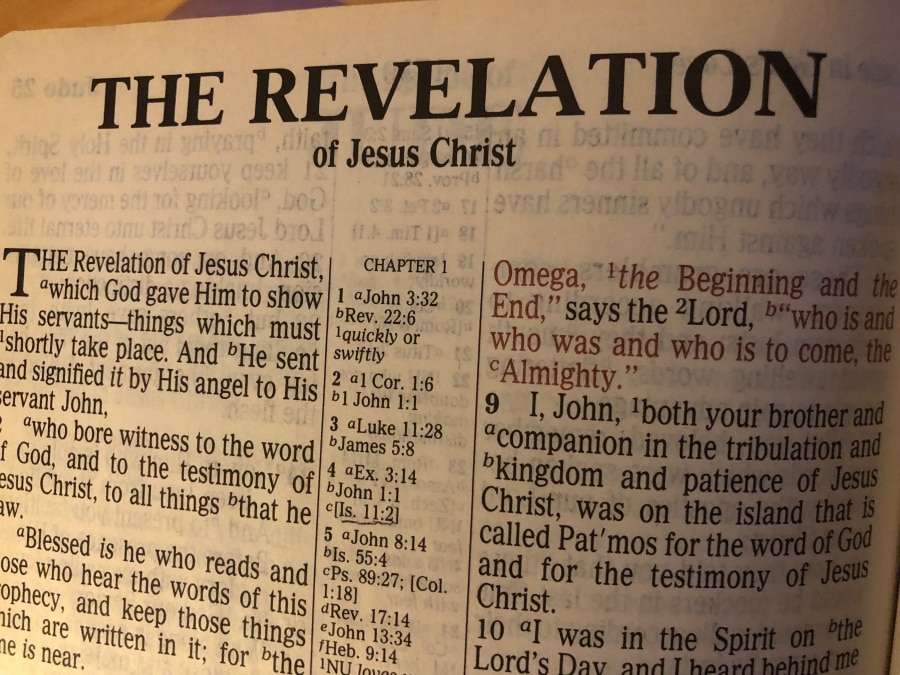
Powered by Series Engine
Dispensations
So here we are. I’m going to give you a quick history lesson:

The cross of Jesus Christ is the focal point of all human history. It sits right in the center between Eternity Past and Eternity Future. All prophecy in the Old Testament focuses on One Person. And then all prophecy from that One Person forward spreads out to include us all. What an amazing plan! Everything is centered on Christ, which is why He’s called the “Cornerstone.” We can divide in half what we call the Old Testament (literally, the “Old Covenant,” referring to the covenant that was made with Israel). There are basically two ages: one before and one after Abraham. That’s where everything changes. I will refer to the earlier age, for lack of a better term, as the “Age of Gentiles.” There were no Jews. Isn’t it amazing that God calls Abraham out of Ur of Chaldea and starts a new race, the youngest race on the planet—the Jewish race. So, the Age of the Gentiles is then followed by the “Age of Israel” or the Law. All that leads up to the birth, life, death, burial, and resurrection of Jesus Christ. With the finished work of Christ on the cross, an entirely new age begins—the marvelous “Church Age.”
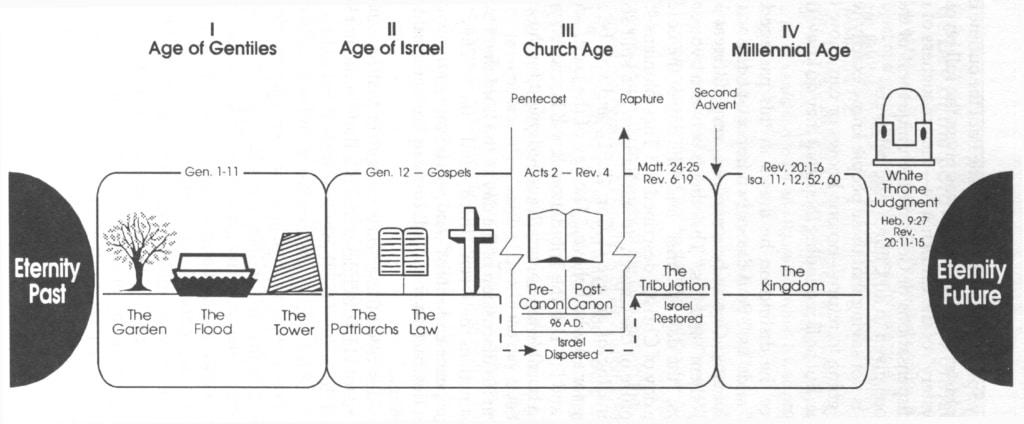
After the Church Age comes seven years of Tribulation. There are so many passages that make it clear that there are seven years. It can’t even be contested. According to Jesus in Matthew 24, the Tribulation Period is the most awful time human history ever has or ever will experience. Think of the days of the plague in Europe. Think of the horrors of World War Two. Think of the death camps. Think of whatever you want to think of as the worst. And if that condition existed throughout the entire world, it still wouldn’t be as bad as what is coming. Revelation chapters 6 through 19 describes this period of time—the Tribulation—as the most horrendous, awful, terrifying time in human history. A time that will be so bad that people will try to die and wish to die and not be able to. That’s what Scripture tells us. Men will seek death and not be able to find it. It will be so horrible.
When we speak of the Church Age, we use the term “Intercalation.” Have you ever heard of “intercalation?” One of the benefits of this lesson is that you get a new word. An intercalation means “something inserted,” as the way that theological grammar describes it—something inserted between two existing things such as Wednesday and Thursday. If you put a new day between Wednesday and Thursday, suddenly, unexpectedly, we have a brand-new day—what we call an “intercalation.” At the beginning of the week, you couldn’t see it coming. Suddenly, you’re told today is not Thursday after Wednesday, tomorrow is not Saturday, tomorrow is some new day. The Church Age is an intercalation in history—a new day inserted upon the resurrection of Jesus Christ. All First Coming (Advent) prophecy has been fulfilled. Second Coming prophecy is yet to come.
One of the reasons that the Jews couldn’t understand who Christ was is because they put First Coming and Second Coming prophecies together. And they didn’t realize there had to be something in between. So where is the “Victorious King?” Where is the “Lion” that they were waiting for? Old Testament prophecy said that when the Messiah comes, He is going to reign with a “rod of iron” so “this guy can’t be Him.” They didn’t understand the distinction between the First and Second Coming prophecies. Revelation 20 describes the Millennial Age—a thousand-year period of time, which begins with Jesus’ Second Coming. Six times, this chapter tells us that it’s going to be a thousand years long and we’re going to reign and rule with Jesus Christ for a thousand years.
Then we read in Revelation 21 and 22 the description of the end of human history and into Eternity Future.
Introducing The Rapture
How does the Church Age end and the Tribulation begin? This will be very familiar to some of you, but to some of you maybe not. And it’s critical for you to know it. It’s what we call the “Rapture” of the Church. Now you will hear people say, nobody taught the Rapture until John Darby came along and John Darby came up with the idea of the Rapture. Well, I hate to inform you, but it was really Jesus Christ who came up with it first, and then the Apostle Paul expanded on it. We have all kinds of information on the Rapture of the Church. What is the next thing that we know, without question, that is going to happen? The Rapture of the Church. What is it? How does it happen? How does it affect us?
Let’s take a look at five different passages. You will understand these five passages if you remember that Scripture is one unit. We will break them up into books, yes, but it is all the Word of God from beginning to end. Each passage complements and supports the other passages. You’ll be able to put these five passages together, not just for your own comfort, encouragement, and assurance, but for other people, because you’re going to run into people who comment about the Rapture, saying, “I don’t believe it.” To me, this is one of the most important things that you and I can know during the time in which we live. So here we go. Let’s see how these five passages fit together, starting in John, chapter 14.
John Chapter 14
John uses language that, if we are not familiar with the culture and the customs of that day, we will completely miss the meaning. So, for example, “No man knows the day or the hour, not even the son, but only the father.” We read that, and we say, “Okay, Jesus had no idea what’s happening, what the Father’s plan is.” It helps us tremendously when we realize that John uses marriage terminology—marriage language. And once we understand that, suddenly it starts making a lot more sense. For example, in John’s day, when a young man and a young woman were engaged or “betrothed,” as they called it, they would come together and have a ceremony; they would make a pledge to each other. The young man would then say, “I am going to prepare a place for you.” So, the bride says, “Well, when are you going to come and get me?” And he says, “I don’t know. I can’t come until my father approves of the place that I’m making for you.” So, he would go and build a house, usually on land that was owned by his father, possibly next to his father’s house. When the father felt that he was done—because, let’s face it, he’s a young guy; He’s going to get married; He’s got this absolutely knock-out gorgeous bride. He can’t wait for the “I do’s” and to get out of town. Right? He’d put up a tent! Right? The pup tent goes up the next day. He says, “Here I am.” Not so fast—the father must pass approval on it. Understanding this custom, we know that Jesus is saying “I’m here to call a bride; I’m here for an engagement, and then I’m going to go …”
Now, let’s look at John 14. If you’ll follow me, verse 1, “Let not your heart be troubled.” After all that we’ve read about the Tribulation, and after looking around the world, “Let not your heart be troubled. You believe in God. Believe also in me.” By the way, when we believe in Him, we’re believing in God. “In my father’s house or many mansions.” “Mansions” is probably better translated “dwelling places.” Trust me, they’re going to be bigger than … your place is going to be better than Mar a Lago! How’s that for an example? It’s going to knock you out! “If it were not so, I would have told you I am going to prepare a place for you.” Here comes this wedding language. “And if I go and prepare a place for you, I will come again.” In other words, “Don’t worry. No matter how long I’m gone, I’m coming back.” “I will come again” and, here’s the phrase I want you to get, “receive you to myself.”
Let’s go back to the wedding for just a minute. In ancient times, in the days of Jesus, when the young man came, he would come with all his rowdy friends. I love to think about the fact that the first miracle Jesus ever performed was turning water to wine. The reason He turned water into wine was because they ran out of wine. I’m of the opinion that they ran out of wine because Jesus showed up with all the disciples. Right? So, He turns water to wine. Well, when a wedding takes place, the bridegroom comes with his friend, what we call the best man, and a company of his buddies. Remember what John the Baptist said? “Someone is coming after me who’s mightier and I am not worthy to unloose His sandals.” And what did he call himself? “I am the friend of the bridegroom. I’m the best man.” I don’t know if you’ve ever thought about this: John the Baptist is the greatest of all the prophets, according to Jesus Christ Himself. All the prophets prophesied until John. But He said, “none was greater than him.” The greatest of the prophets, the greatest of all the Old Testament sayings, which would put him ahead of Moses and everybody else. In the Kingdom of Heaven, David is going to be less than you. Ponder that for just a minute. You hold a higher position. You hold a greater position because of two words that Paul writes repeatedly, “in Christ.” No one before the resurrection of Christ was “in Christ.” This is something that happens only by the baptism of the Holy Spirit. And baptism of the Holy Spirit did not happen in the Old Testament. To be placed into “union with Jesus Christ,” not just as a child of God, not just as a believer, but as—what makes us so special—His Bride. What did John say? “I saw the New Jerusalem coming down out of heaven.” John describes it: Beautiful … Fabulous. But sometimes we get so caught up in the twelve gates (pearls) and the twelve foundation stones that we forget John is using symbolic language. I’m not saying it’s not going to look like that, but let’s not forget he’s talking about “the Bride.” He’s talking about us. And he’s using pictures that stun and amaze us as we think of the beauty! Imagine the walls of the city being transparent gold. Imagine the fact that there is no light needed in the city because the Lamb is the light of the city, and that light is going to shine out through the walls of that city. And it says, “the nations will walk in the light of it.” Astounding. Amazing. But it’s wedding terminology.
So, here’s Jesus saying, “I will come again, and I will receive you to Myself.” When the bridegroom, his best friend, and all his buddies come down the street, they’re not sneaking up. They’re blowing trumpets. They’re singing. They’re shouting! You can hear them coming a half mile away. The bride—and we don’t realize that the custom of ours, where a young lady has a trousseau or her hope chest goes all the way back to biblical times. Because once that young man left and said, “I’m coming, I can’t tell you when, but when the father tells me to go, I’m coming!” She’d live in expectation every day thinking, “he’s coming.” Every day, she’s looking forward to his coming. That’s what we’re supposed to be doing about the return of Jesus Christ. When the bridegroom and his friends came down the street, she grabbed her wedding dress and her makeup—whatever she needed. She ran out to meet him. He didn’t come to the house. She would go running down the street, probably barefoot. Here she is, running down the street. I mean, he’s come for her, right? And they would go to the father’s house and there she would prepare herself. The wedding lasted seven days—seven days of feasting, seven days of celebrating, seven days of singing. It would just be beautiful. “If I go and prepare a place, I will come again and receive you.” We go up; He comes down and we meet. Just hold on to that idea.
1st Thessalonians Chapter Four
Turn with me to 1st Thessalonians 4:13. “I do not want you to be ignorant, brethren.” And this is why I’m doing this tonight. Because Paul says this is something we need to know. “I do not want you be ignorant concerning those who have fallen asleep.” How many people here have loved ones who have died? All of us. How many of us have people that just were taken from us way too soon? Paul says, “I don’t want you to sorrow as those that have no hope. For if we believe that Jesus died and rose again.” That’s it. Simple faith, childlike faith in the Person and the work of Christ. “Even so, God will bring with Him those who sleep in Jesus.” This refers to all those we know who are believers who have died. When He comes, they come with Him, right? There’s going to be a great reunion in the sky.
Verse 15, “For this we say to you by the word of the Lord,” Paul wants us to know this is God’s Word. “That we who are alive and remain until the coming of the Lord, will by no means precede those who are asleep.” Why does he use the term “sleep”? Because when you sleep, you will wake up, right? The body sleeps in the grave. Don’t believe in the teaching of soul-sleep because the Scripture plainly teaches that when we die, we are instantly, “face to face with the Lord.” Our soul and spirit go to be with the Lord. Our body goes into the ground. The body is going to wake up! That’s important because of something that is coming here. If God “bringswith Him those who sleep in Jesus,” the Lord will not be receiving those who are asleep. “For the Lord Himself will descend from Heaven with a shout, with the voice of an archangel and with the trumpet of God. And the dead in Christ will rise first.” Wait a minute, you say—I thought he just said they’re coming with Him. He did. Now he’s saying that the “dead in Christ” are coming up from the grave. They are. How does this work? Soul and spirit coming down with Jesus, resurrected body coming up. It’s not just going to be a reunion with our loved ones. It’s going to be a reunion of the soul and spirit with a resurrected body. Your resurrected body—I don’t know if this will encourage or discourage you—is going to be the one you have now, but trust me, it will be better. No more weight problems, no more need for glasses, no more bad hearing for those of us that are getting long in years. None of that. The body rises, the soul and spirit come down. There’s a reunion of the total person.
“We who are alive and remain are caught up together with them in the clouds to meet the Lord in the air, and thus we will always be with the Lord.” From that moment forward, there will never again be a separation. What did Jesus say? “I will receive you to Myself.” Language in Scripture is very important. Sometimes, just failure to understand a single word can set us off track. He didn’t say, “I’m coming back to Earth.” He said, “I’m going to come and I’m going to receive you.” The bridegroom comes and the bride does what? She leaves everything else behind goes to meet him. Instantaneous resurrection body! All right? Just look at the next chapter. So, we know John Chapter 14: He’s coming again. He’s going to receive us. 1st Thessalonians 4 explains how it all happens.
1st Thessalonians Chapter Five
When does it happen? Can we prove that the Rapture takes place before the Tribulation? Yes, we can, because Paul writes about it in the next chapter. 1Thess. 5:1, “Concerning the times and seasons.” This is biblical language for dispensations. “Concerning the times and seasons. You have no need that I should write to you because you yourselves know perfectly …” How amazing is this? Before Jesus was resurrected, His disciples said, “Will you at this time restore the Kingdom of Israel?” And what is His answer? “It is not for you to know the times in the seasons.” There were some things that they couldn’t know that Paul now says we should “know perfectly.” We should have full understanding of the Tribulation: “know perfectly that the day of the Lord,” which is Old Testament code language for the Tribulation Period, “the Day of the Lord comes as a thief in the night.” Have you ever heard Christians say to you, “Well, you know, the Lord is coming as a thief in the night?” My answer always is, “Not for me He’s not.” Why would I say that? Because of what Paul says here. Look, “You yourselves know perfectly the day of the Lord comes as a thief in the night. For when they [unbelievers] say ‘Peace and Safety,’ then a sudden destruction comes on them as labor pains on a pregnant woman and they will not escape.” Hint: Tribulation Period. “But you, brethren, are not in darkness. So this day will overtake you as a thief.” Not going to happen. Why? “You are all sons of light and sons of day. We are not of the night, nor of darkness. Therefore, let us not sleep as others do.” Wait a minute. He just used the word “sleep” in chapter 4 for “death,” and now he’s saying, “don’t sleep?” Does that mean we’re supposed to do everything we can to try not to die? Here again: Two different words are used for “death.” The word that’s used in 1st Thessalonians chapter 4 is koimaō. And it means “to lay down and take rest.” It’s a very positive word there. The word here in chapter 5 is katheudō and means “don’t be a numskull; don’t be an idiot; don’t be ignorant; don’t be unconscious and unaware of what’s going on.” “Let us not sleep as others do,” he says, “but let us watch and be sober.” What are we watching for? The coming of the Bridegroom!
“For those who sleep, sleep at night. Those who get drunk or drunk at night. But let us who are of the day that is believers be sober, putting on the breastplate of faith and love and as a helmet, the hope of salvation.” Get ready for this: “For God did not appoint us to wrath.” Hint: the Old Testament term “wrath” is used about 20 times for the Tribulation Period: the Day of Wrath. “God did not appoint us for wrath.” What did He appoint us for? “He appointed us to obtain salvation, [deliverance] through our Lord Jesus Christ, who died for us.”
Here’s another sacred cow that we’re going to demolish: “If you’re ready when Jesus comes, you get to go. And if you’re not ready, you stay behind and you go through the Tribulation.” Have you ever heard of that one? What does Paul say about it? I don’t know about you, but I take his word over other people. In 1 Thess. 5:10, Paul says, “… the Lord Jesus Christ … died for us so that whether we’re awake or asleep … in other words, “whether we are scripturally instructed, well-instructed and intelligent, or whether we’re like one of those numskulls wandering around, not even knowing what’s going on.” There are a lot of believers like that. But you know what? Here’s the grace of God: “Whether we are awake or asleep, we will all live together with Him.” Does anyone get left behind of the family of God when Christ comes? No. What if I’m sinning when He comes, do I get left behind? No. Why? He already paid for the sin!
2nd Thessalonians Chapter Two
The next book Paul wrote was 2ndThessalonians. If you go through chapter one of 2nd Thessalonians, Paul is describing what he was just talking about in 1st Thessalonians chapter 5—the “Day of the Lord.” He talks about judgment there and in 2 Thess. 1:5, “manifest evidence of the righteous judgment of God that you may be counted worthy of the kingdom of God for which you suffer, since it’s a righteous thing that God would repay with tribulation those who are troubling you and give you who are troubled rest with us. When the Lord Jesus is revealed from heaven with His mighty angels in flaming fire, taking vengeance on those who that do not know God and those who do not obey the gospel.” This is all about horrible, horrible judgment. What is he talking about right here? He is still going on about “the Day of the Lord.” Now, if you’re a believer in the first century and you’re reading this maybe even today, you start thinking, am I going to go through that? Is that going to affect me?
In 2 Thess. 2:1, Paul says, “Now, brethren, concerning the coming of our Lord Jesus Christ and our gathering together to Him …” He is graciously comforting the readers! This fits with what we saw earlier in John 14 when Jesus said, “I will come again and receive you to Myself” and what he said in 1 Thess. 4:16, “The dead in Christ will rise first.” Do you see the commonality in the language? “We ask you” (verse 2), “do not be shaken in mind or troubled either by spirit or by word or by letter, as if from us.” There are preachers right now—and I could name a bunch of them (you probably know some of their names)—who are saying we’re already in the Tribulation. Are you kidding me? Do you feel like you’re going through a worse time than has ever happened in history? I don’t think so. Paul is basically saying, “I don’t care if someone speaks by some spirit, some prophet comes to you, or even if you get a letter in the mail, claiming to be from me and my team, “as if the Day of Christ had come” and some of your translations say, “Day of the Lord.” In the Greek manuscript tradition, there are basically two versions. One says, “Day of Christ.” Day of Christ means “Rapture.” The other says, “Day of the Lord,” referring to the “Day of Wrath.” In either case, if that Day has come, where are you? You’re in the Tribulation, right? If someone sends you a letter and says, “Hey, by the way, we’re in the Tribulation,” Paul says, “Don’t be troubled; Don’t let this upset you; Don’t let this disturb you.” Verse 3, “Let no one deceive you by any means, for that day …” Right there. Tribulation. “That day will not come unless the falling away comes first. And the man of sin is revealed. The son of perdition.” Paul is talking here about Antichrist. Basically, he’s saying that that time is not going to come until Antichrist is revealed. Do you and I know who he is? No. Have you heard this: “They’re going to start putting microchips in us and that microchip is the mark of the beast?” Before that, it was your Social Security number that was the mark of the beast. And before that it was your birth certificate was the mark of the beast. And it goes on and on and on. The answer is, No! He’s not here. He’s not going to be here while you and I are here. That day cannot come until he is revealed.
Verse 4, “who opposes and exalts himself above all, that is called God or worshipped, so that he sits as God in the temple of God, showing himself as if He is God.” In other words, this guy is going to claim to be God in the flesh. This is what Daniel calls and Jesus referred to as “the Abomination of Desolation.” “When you see the Abomination of Desolation flee!” Are you and I going to have to flee? No, we’re not going to be here. Who’s going to have to flee? Jews in Jerusalem. They’re going to have to get out.
2 Thess. 2:5, “Do you not remember when I was still with you, I told you these things.” Verse 6, “Now you know,” he says, “what is restraining.” Take note. Whatever is keeping that Antichrist from coming is the “what.” “Now you know what is restraining that he may be revealed in his own time. For the mystery of lawlessness is already at work. Only he who now restrains will do so until he is taken out of the way.” Who is the restrainer? It’s the Holy Spirit. Who is the “what?” The Church. The Church is the “what.” When the church goes up, the Holy Spirit goes up. This doesn’t mean He’s not going to be working during the Tribulation Period, but He will not be working in the sense that He is now. It’ll be totally different. It’ll go back to Old Testament conditions. So, Paul concludes, “Then the lawless one will be revealed whom the Lord will consume with the breath of His mouth destroyed with the brightness of His coming.” When did we see that? In Revelation 19. When did it happen? The Second Coming of Christ at the end of the Tribulation Period. Are you seeing how the passages fit together? I hope so.
Revelation Chapters Four and Five
In the first three chapters of Revelation, we see the Church. The word “church” occurs 19 times in these chapters. It does not occur again between chapters 6 and 19, which are all the Tribulation Period. That should tell us something. If John mentions the Church 19 times and then suddenly, he doesn’t mention the Church at all through the whole Tribulation Period, where is the Church? Revelation 4:1 says, “After these things I looked and behold a door standing open in heaven.” You’ll notice the word “standing” is in italics. This means that it’s not there in the original language. “A door open in heaven”—literally—the perfect tense means “a door that was opened at some point in the past and remains open to the present time.” When was the door opened? It was open when that veil in the Temple ripped from top to bottom and God said, “The way into my presence is free and clear and everyone is welcome.”
“The first voice I heard was like a trumpet speaking with me, saying, ‘Come up here and I will show you the things that must take place after this.’” Literally, this should be translated “after these things.” Do you remember the outline that we were given in chapter one, verse 19? “Write the things that you have seen,” That’s chapter one; “and the things which are,” that’s chapter two; “and the things that will happen after these things.” Well, now, in chapter 4, we are “after these things.” Verse 2,“Immediately I was in the spirit. Behold a throne said in heaven. One sat on the throne, and he was sat was like Jasper was already a stone appearance. There was a rainbow around the throne, appearance like an emerald.” John then describes all the magnificent visual effects, followed by the four living creatures and the 24 elders with their crowns.
But what I want to get to as we move now into Revelation chapter 5 is this: John is still in Heaven. He’s still taking in everything that’s happening. Notice in Rev. 5:8, “When he had taken the scroll, the four living elders and the 24 elders fell down before the Lamb, each having a harp and golden bowls full of incense, which are the prayers of the saints.” You are going to see your prayers right there. You’re going to know that not even one of them was ignored. Your prayers to God are like incense—the “prayers of the saints.”
Verse 9, “And they,” these are the 24 elders along with the angels, “are singing a new song saying, ‘You are worthy to take the scroll and open the seals for You were slain and You have redeemed somebody to God by Your blood.’” What does it say? “You have redeemed us.” Who is the “us?”—it’s the Church. It’s the only thing it can be. How do we know that? “You’re redeemed to God by your blood out of every tribe and tongue and people and nation and have made somebody kings and priests to our God. And we shall reign on the earth.” What is the only group of people in all of human history who are royal priests? Church-age believers! Peter tells us this in 1st Peter, chapter 2. Everyone who believes in Jesus Christ between the coming of the Holy Spirit and the Rapture of the Church is immediately made a member of the Royal Family of God and a member of an eternal priesthood. This did not happen in Old Testament times. And it’s not going to happen in the Tribulation, or in the Millennial Kingdom. “Royal Family” is a designation that belongs only to us. Why is that important? Because if John is called up to Heaven in Revelation 4:1 and in Heaven, he sees an innumerable company of people who are thanking God for making them kings and priests, what does that tell us? The Rapture of the Church has already taken place. And that’s why from chapter 6 to chapter 19, we never read the word “church.” Paul gives the Church a great exhortation in Titus 2:13, “Keep looking for the blessed hope and the glorious appearing of our great God and Savior, Jesus Christ.” I hope that what we’ve covered tonight will challenge you every single day—not just to expect it could be today, but to pray that it will be today.
The Last Prayer
Do you know what the last prayer in the Bible is? Do you know who prays the last prayer in the Bible? Let’s look at Revelation 22:16–19, “I, Jesus, have sent My angel to testify to you these things in the churches.” Jesus, through John, is talking to the Church. “I am the Root and the Offspring of David, the Bright and Morning Star … the Spirit and the bride say, ‘Come!’ And let him who hears say, ‘Come!’ And let him who thirsts come. Whoever desires let him take of the water of life freely.” Verse 20, “He who testifies to these things says, ‘Surely, I am coming quickly’ … Even so, come, Lord Jesus!” Who is praying this prayer? The Church. Have you ever thought that if the Book of Revelation—the last book of all the books of the Bible—ends with the Church praying that prayer, that maybe He’s not going to come until the Church cries out for Him to come? Let me ask you a question: How long has it been since you prayed that He would come? I must tell you, I pray for it every day. Every day! Because as I look into the future and yes, we all have hopes, dreams, and plans—there are good things out there ahead that we all would love to experience. But I must tell you, with the trajectory of history, and particularly the trajectory of our country right now, I do not have a lot of hope that things will turn around. There are things on our horizon that I do not want you to have to go through, and I do not want my children and my grandchildren to have to go through; things in our world could get bad quickly. Do you know what it motivates me to do? Pray, “Come, Lord Jesus!” I would encourage you to pray this prayer every day. I’m going to end with the following prayer:
Gracious Heavenly Father, we all unite right now in this room as we gather together around your Word and in the power and the presence, the control of God, the Holy Spirit. We do pray that the Lord Jesus will come quickly. We realize that as He waits and as we wait for Him, there is work to be done. There are wonderful things to enjoy and experience in time with friends and loved ones. But, Father, we know that nothing we can experience on this Earth can compare to what we will experience in His presence. So, Father, I do pray that you will teach us to “look for that blessed hope” and to pray that that blessing will become a reality to us. May the Lord Jesus come soon. We pray in His gracious name. Amen.


